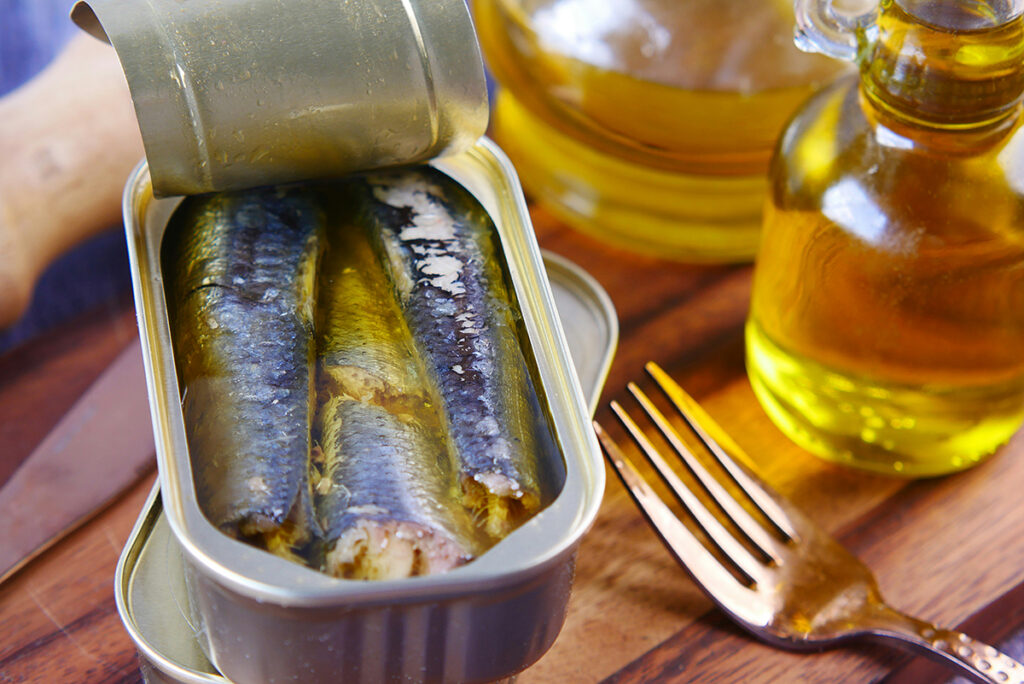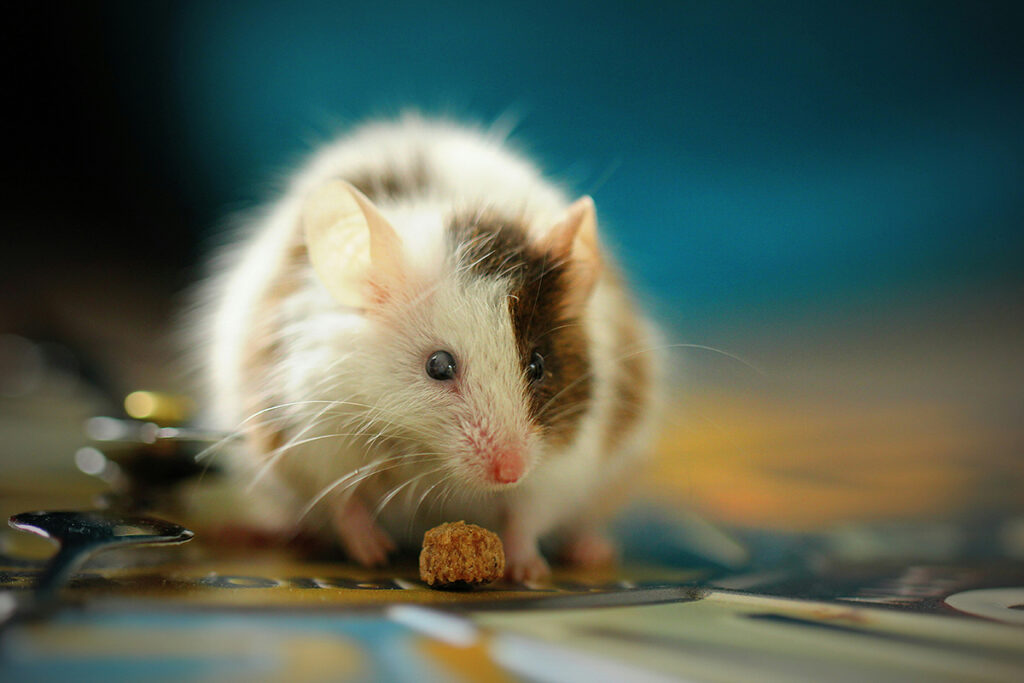Nutrition affects thinking, memory, and emotions. Certain nutrients can improve brain function by regulating the activity of neurotransmitters – signaling molecules that transmit impulses between neurons. For example, ginseng extract and some probiotics can reduce depression by increasing the level of brain-derived neurotrophic factor (BDNF). Vitamin D protects the brain by maintaining normal levels of the neurotransmitters dopamine and serotonin. Antioxidants help combat oxidative stress associated with major depressive disorder.
Possible Mechanisms of Depression Development
Depression is a multifactorial disease, among the causes of which are:
- Biochemistry: Changes in the levels of certain chemicals in the brain can contribute to depressive symptoms.
- Genetics: 20% of depression is associated with genetic predisposition.
- Personality: People with low self-esteem, who are easily stressed and generally have a pessimistic outlook, are more likely to experience depression.
- Environmental factors and comorbidities: Persistent violence, neglect, cruelty, poverty, and dysfunction of the thyroid or brain can contribute to depression.
Stress Causes Inflammation and Contributes to Depression
Social stress, disruptions in the endocrine system, and drug use can lead to depression through complex molecular mechanisms. Stress affects the activity of the sympathetic and parasympathetic nervous systems and induces inflammatory reactions. Inflammatory processes and activation of the innate immune system, primarily through TLR2 and TLR4 receptors, play an essential role in the development of depression. Research in animals and humans has shown that inflammatory reactions and microglial activation in the brain are associated with depressive symptoms. Patients with depression have elevated levels of inflammatory cytokines in the blood and activation of immune cells in the brain, indicating the critical role of inflammation in the development of depression.
Chronic stress can alter brain structure by reducing neurogenesis and causing long-term changes in the prefrontal cortex, hippocampus, and adjacent nuclei, exacerbating depression. Reduction of brain-derived neurotrophic factor (BDNF), necessary for brain health, contributes to depression.
At the same time, BDNF levels decrease in depression, creating a vicious cycle and contributing to worsening conditions. Additionally, decreased BDNF stimulates chronic inflammation. Chronic inflammation alters the hormonal activity of the hypothalamus, leading to reduced serotonin levels, impaired neuroplasticity, and worsening depression.
Diet Reduces Inflammation and Counters Depression
Depression arises from social and psychological stress, immunological disturbances, or changes in neurotransmitter levels. Diet can diminish the pathological influence of these mechanisms:
- Diets with anti-inflammatory properties can reduce the production of inflammatory cytokines, attenuating brain inflammation and contributing to depression relief.
- Diets with antioxidant properties can decrease oxidative stress in specific brain areas, alleviating depression symptoms.
- Diets that increase BDNF levels can improve the condition of patients with depression. The Mediterranean diet protects against depression, while the Western diet predisposes to it.
The Mediterranean Diet Protects Against Depression, While The Western Diet Predisposes to It
Studies confirm that balanced nutrition, especially the Mediterranean diet, reduces the risk of depression. Fish oil supplements and the Mediterranean diet have also shown a positive effect, improving mental health. Interestingly, the effect of such a diet persisted for up to six months.
The Western diet, rich in fast food, refined products, saturated fats, and simple carbohydrates, is associated with an increased risk of depression. Saturated fats and refined carbohydrates can cause inflammation and oxidative stress, disrupt the gut microbiome and gut-brain interaction, lead to hippocampal degeneration, and result in nutrient deficiencies – all of which are depression risk factors. Consumption of sugar and sugar-sweetened beverages increases oxidative stress and contributes to depression development. A meta-analysis involving nearly 50,000 people showed that a high dietary inflammatory index correlates with an increased risk of depression, especially in women.
Traditional diets, including healthy foods, can also protect against depression. Diets rich in vegetables, fruits, and typical Japanese products such as mushrooms, seaweed, soy, and green tea help reduce the risk of depression. The typical Tuscan diet, rich in vegetables, olive oil, grains, fruits, and fish and moderately containing wine and red meat, can protect against depressive symptoms. The traditional Indian diet, containing herbs and legumes, ethnic bread, whole milk and ghee, fruits, and vegetables, reduces postpartum depression and anxiety.
Foods That Alleviate Depression
- Fish: Research shows that regular fish consumption is associated with a lower risk of developing depression. Women who consume fish more than once a week experience fewer depressive symptoms, while such a relationship is not observed in men. High fish consumption can also reduce the risk of depression during pregnancy.
- Fresh fruits and vegetables, rich in antioxidants, can increase serotonin levels in the brain and improve mood. In a Canadian study, participants were asked about their diet and psychological state. The results showed that the more fruits and vegetables participants ate, the less depression and stress they experienced.
- Fiber reduces total cholesterol, triglycerides, and low-density lipoprotein cholesterol levels during inflammation and brain dysfunction caused by a high-fat diet.
- Omega-3 polyunsaturated fatty acid (PUFA) supplements, especially eicosapentaenoic acid, can reduce the frequency of depression.
Antioxidants Against Depression
Depression is associated with impaired defense against oxidative stress and decreased levels of vitamin E, ascorbic acid, and omega-3 in the blood. Studies have shown that antioxidants such as omega-3, folic acid, vitamin B12, vitamin D, and polyphenols can reduce the risk of depression. The exact mechanism by which omega-3 reduces depression symptoms is unknown. However, omega-3 may affect serotonin and BDNF levels and reduce the production of pro-inflammatory cytokines.
Vitamin D can prevent depression by maintaining normal calcium and serotonin levels. Patients with depression have increased Ca2+ levels in neurons. Vitamin D regulates calcium metabolism, promoting the expression of proteins that act to reduce intracellular Ca2+ levels. Additionally, vitamin D suppresses microglial inflammatory reactions and promotes serotonin synthesis.
Consumption of polyphenols found in tea can reduce depression symptoms. In a Japanese study, participants who drank more than four cups of green tea daily were 51% less likely to suffer from depressive symptoms than those who drank less than one cup.
Lemon essential oil, pectin, caffeine, and saponins from red ginseng can help with depression. These products affect different systems in the brain, helping regulate serotonin and dopamine levels, which are essential for maintaining a good mood. Caffeine reduces fatigue and inflammation. Pectin improves memory and has antidepressant effects by improving the balance of IL-1β and IL-6 cytokines in the hippocampus. These cytokines affect neurogenesis and long-term memory. Red ginseng Rg3 saponin reduces neuroinflammation and improves tryptophan and serotonin metabolism in the hippocampus.
Conclusion
High consumption of fruits, vegetables, olive oil, nuts, fish, and whole grains, as well as reduced intake of meat, meat products, commercial baked goods, trans fats, sweet desserts, and beverages, can reduce the risk of depression.
Inflammation plays a vital role in depression. Therefore, foods with anti-inflammatory and antioxidant properties and foods that lower triglyceride levels and low-density lipoprotein cholesterol can help prevent and treat depression. Among such foods are fiber, omega-3 supplements, folic acid, vitamin B12, vitamin D, and polyphenols.
Useful article, necessary information? Share it!
Someone will also find it useful and necessary:
Reference
Linking What We Eat to Our Mood: A Review of Diet, Dietary Antioxidants, and Depression



